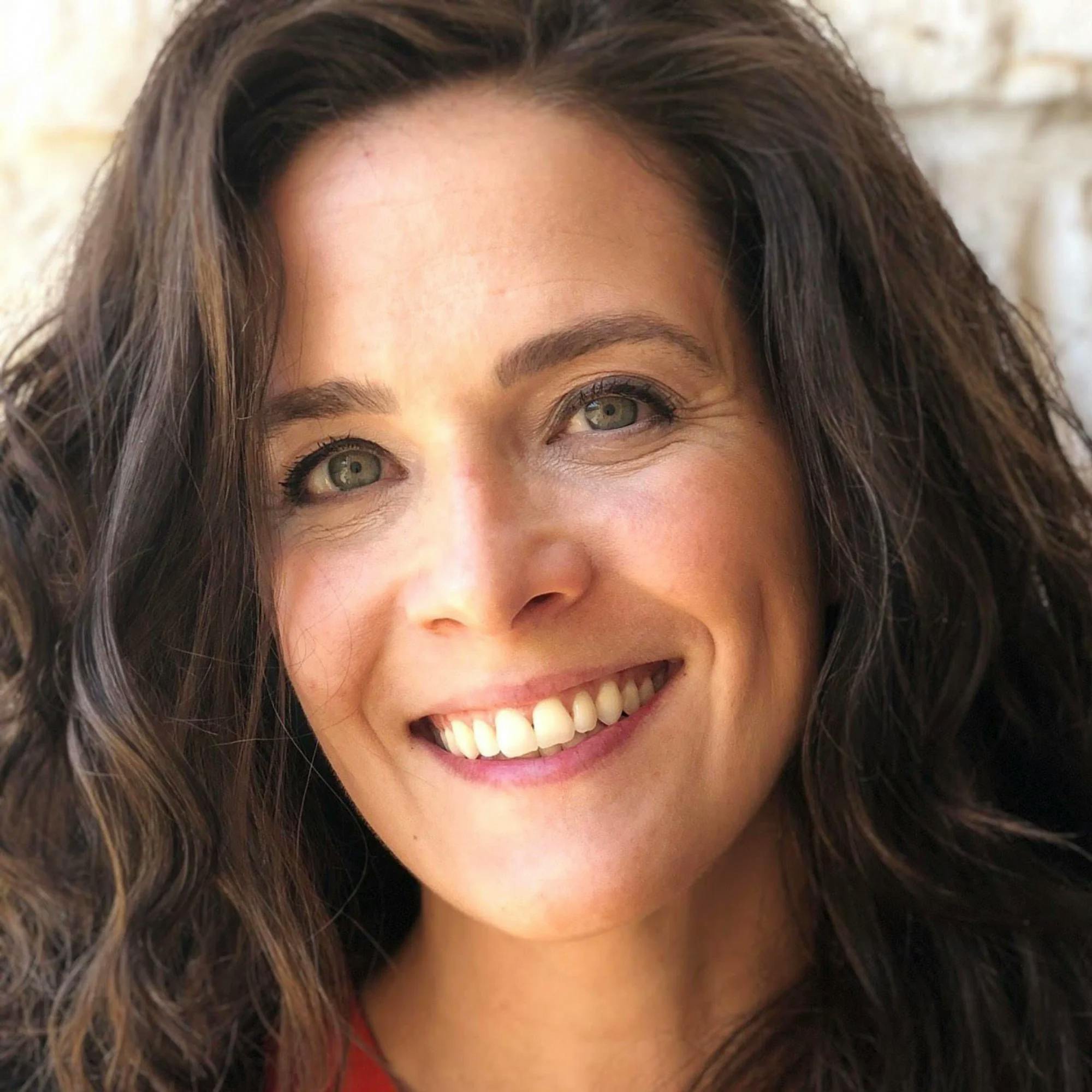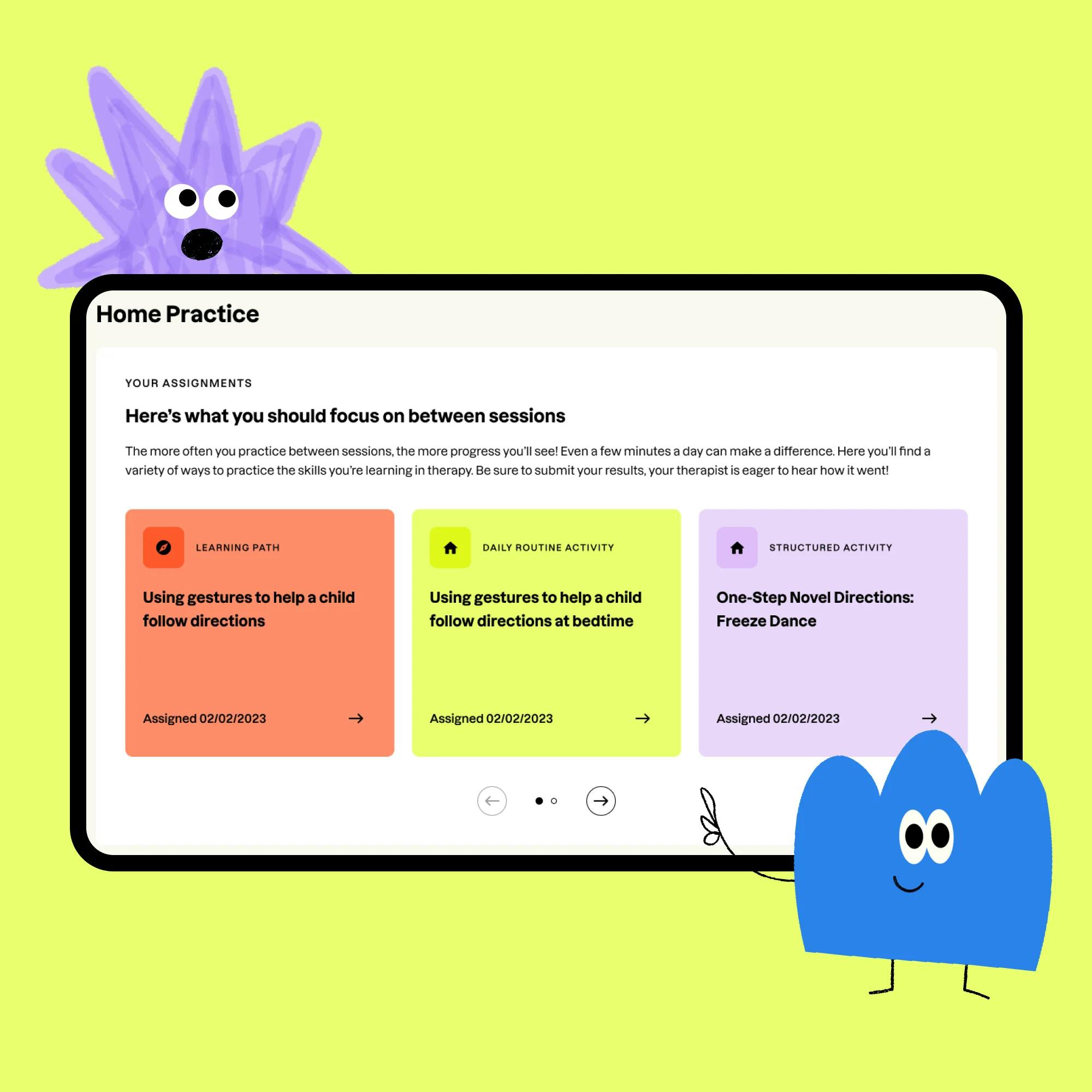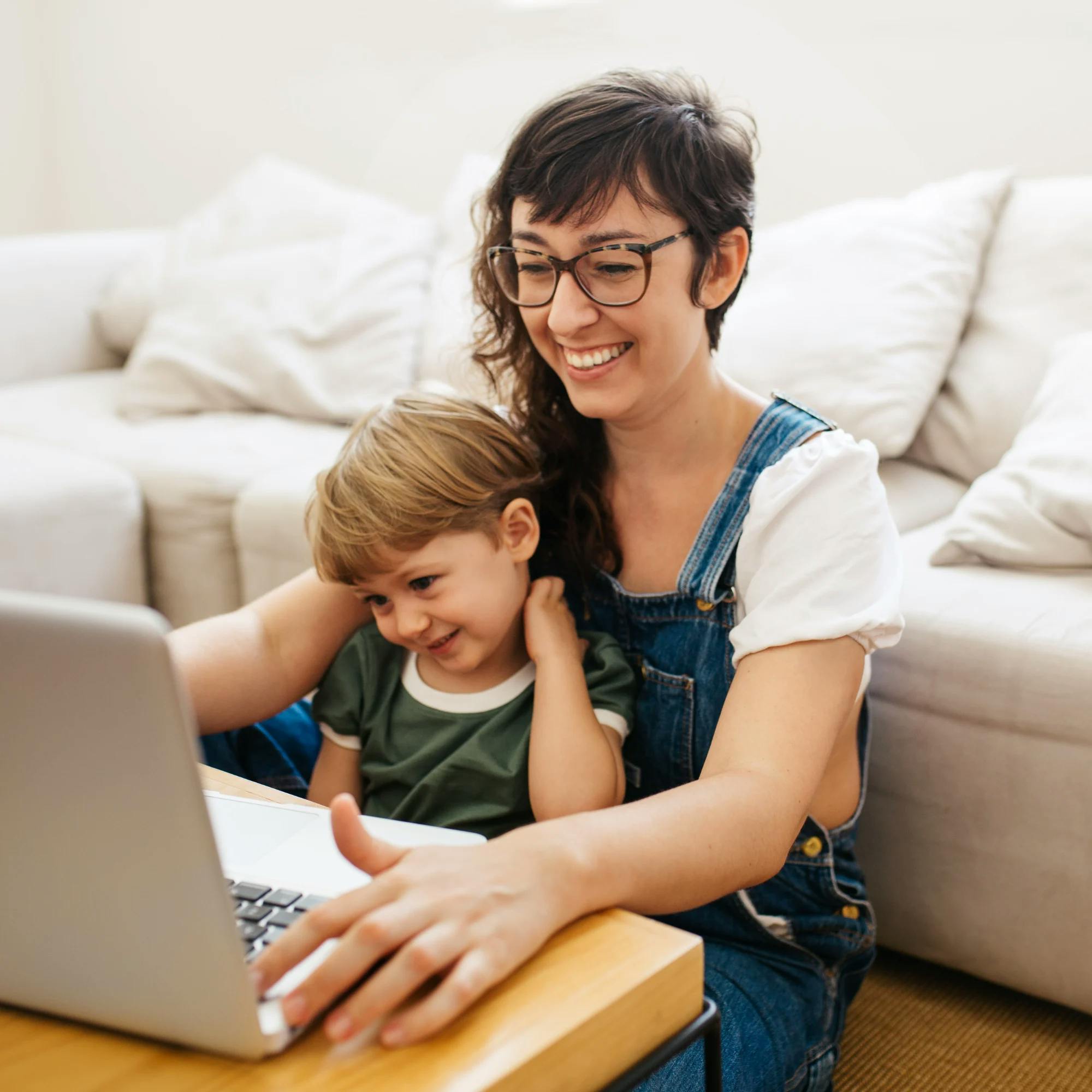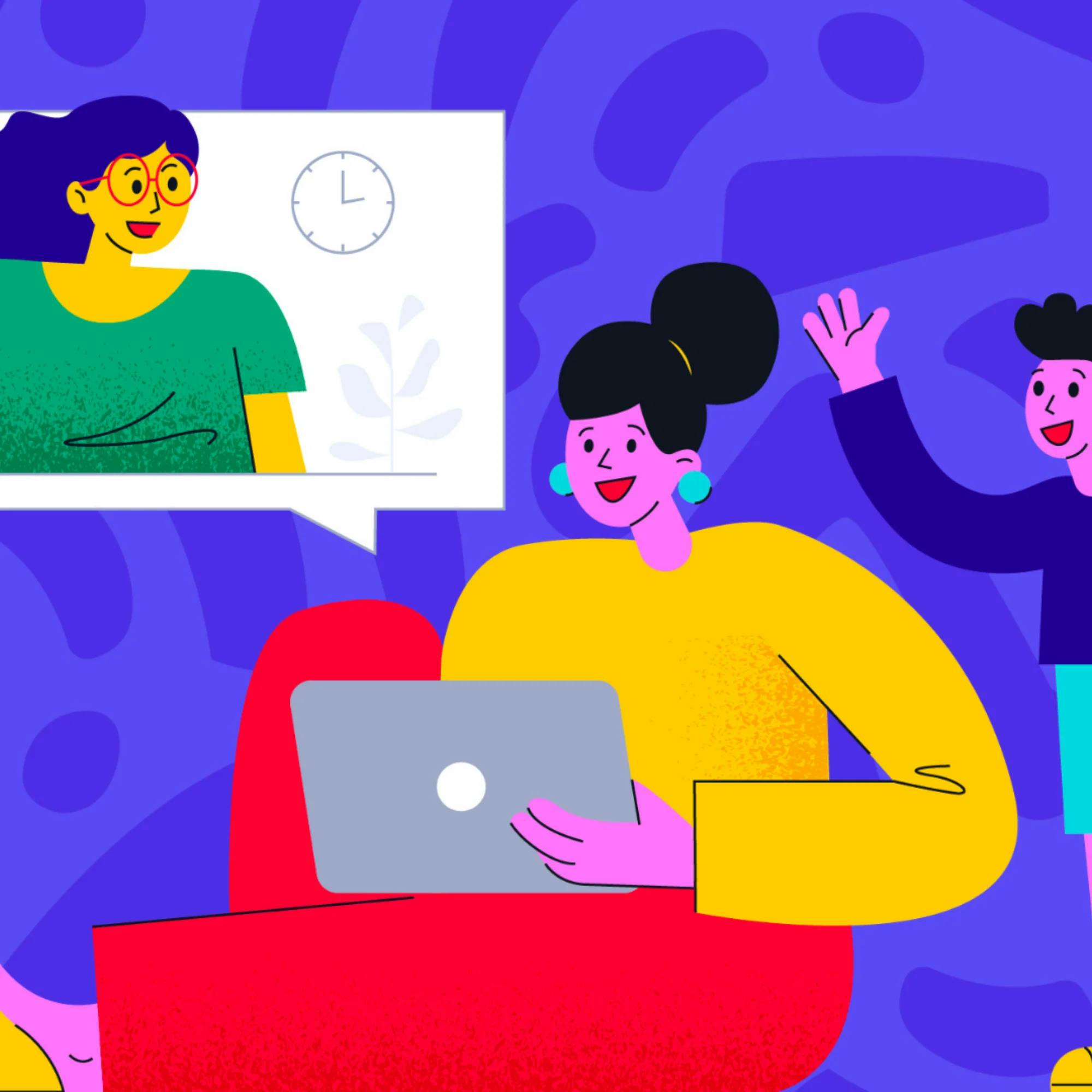
Speech Therapist Spotlight: Erica Wood, M.S., CCC-SLP
 Leanne Sherred, M.S., CCC-SLP
Leanne Sherred, M.S., CCC-SLP
We recently sat down with Erica Wood, M.S., CCC-SLP, to dive into her background and experience, clinical approach, inspiration for becoming a speech therapist, and more. You can read more about Erica here.
Can you spend a few minutes talking about your experience and background as a speech therapist?
I began my speech therapy career working in elementary schools, first on an emergency credential during graduate school, and then as a clinical fellow after graduation. After that year, I was offered a position in an acute inpatient rehab facility (IRF), which was my dream job at the time! I worked in the IRF for three years and only changed settings when we moved because of my husband’s career.
I spent the next five years in skilled nursing facilities in California, Arizona, and Texas, as we kept moving where my husband’s promotions led us. The next big shift in my career came after our daughter was born. I was working in skilled nursing in Texas and commuting about an hour and a half each day with our baby in tow. I loved my job and coworkers, but I felt a strong pull to be at home more. That's when I started looking into providing speech therapy online.
In 2019, I made the transition from skilled nursing to working with kids in schools via teletherapy. Not only only did this have major lifestyle benefits, but I also rediscovered what originally drew me to speech-language pathology: working with children on speech sound disorders!
However, another curveball came in March 2020 when schools began shutting down due to COVID-19. During my unexpected time off from work, I found myself with much-needed extra time with my baby, and also more opportunities to scroll through Instagram, where I was fortunate enough to discover Expressable online speech therapy. From then on, I've been afforded the flexibility of working from home while still focusing on my most beloved area of speech pathology.
Why did you decide to become a speech therapist?
I went to college without a clue as to what I would do afterward. I was the first in my family to go to college, and I went because I was a “good” student and thought it was the right thing to do.
My family cheered me on as I blindly took classes to complete my degree in sociology. As graduation approached, I found myself still feeling lost - until I took a linguistics class. Something about all those speech sounds just clicked in my nerdy brain, and thankfully I stumbled upon speech-language pathology. It was one of the best decisions I ever made. I will always be thankful for taking that random class and setting myself up for a career I've absolutely loved ever since.
What areas of speech-language pathology interest you most?
My original love was speech sound disorders (SSDs). However, my skills and experience soon evolved after working in the medical setting, where I helped adults who had communication-related needs because of a stroke or traumatic brain injury. After becoming a mom, I rediscovered my love of SSDs and got a renewed interest in early childhood language.
What part of your job do you find most enjoyable?
I love showing parents simple ways to encourage language at home. Most of the time this isn't hard, it’s just a matter of thinking a different way. It's a fantastic feelings when parents realize that they have the tools to help their child by incorporating speech therapy techniques into their everyday lives. I also love seeing the light bulb go off for young clients when they make a “new” sound that previously felt out of reach.
Among all the clients you’ve taught throughout your career, is there a particular success story that stands out in your mind?
One that stands out to me is a kindergartener who I worked with in the school setting for months on the sounds /k/ and /g/. I used all the tricks and techniques I could think of, but continued to struggle with producing those sounds correctly.
Fast forward to about a month later. After schools had shut down due to coronavirus, I began working with the child virtually from his home with his mom by his side. Suddenly, he was able to make his target sounds, with a bit of help from me and mom modeling them! For a speech-language pathologist that largely works with kids that have articulation disorders, it felt magical. I don’t know if things coincidentally clicked, but I think that having mom sit alongside him during the sessions did the trick.
One thing I love about Expressable compared to the school setting is how I get to interact with parents regularly and ensure that they are part of the process. With younger kids especially, parent involvement is HUGE! This case really made that clear to me.
How do you assess and monitor your clients’ progress?
Whenever possible, I take data during sessions to help track and address goals. I share it with clients (or their parents) to illustrate how far they’ve come. For younger clients, I rely a lot on parent reports because there’s only so much you can see in a therapy session. At the end of the day, how children apply their newfound skills to their day-to-day life is what's most important!
What attracted you to online speech therapy?
Becoming a mom! Online speech therapy allows me to continue working in a career that I love while also allowing flexibility with my schedule, and the ability to be home and maximize time with my family.
What are your hobbies or passions outside of speech therapy?
I enjoy yoga and running, although it’s a bit of a challenge squeezing those things in as the mom of a toddler. Now I’m much more likely to be found taking a slow-paced walk, with lots of stops to look at anything that catches her attention along the way.
Is there anything else you’d like to share?
Expressable has allowed me to focus on the areas of speech and language that I truly love. I’m immensely grateful to be here and work with all of my clients, past, present, and future!











